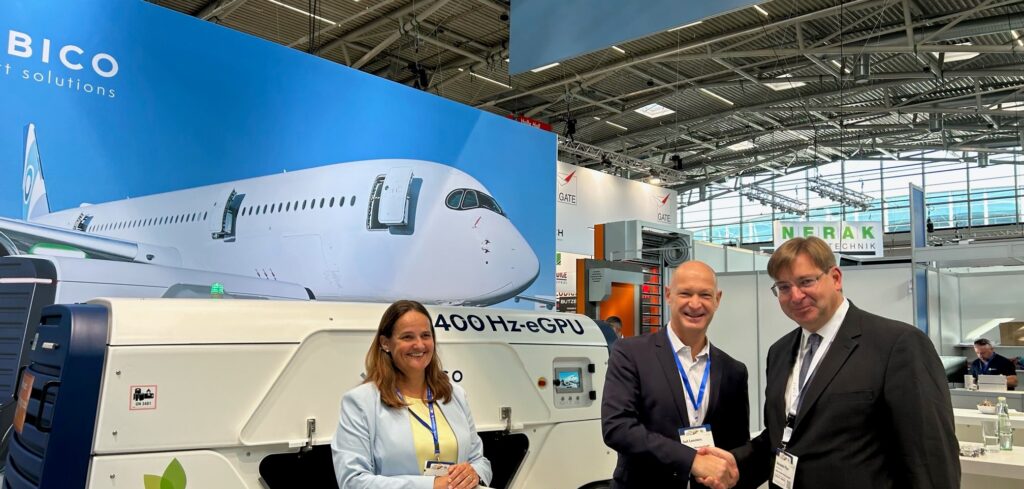Munich Airport has signed a signed a letter of intent (LOI) with its Terminal 2 subsidiary Dabico Airport Solutions Germany to develop a concept for fully automated passenger boarding bridges.
With the LOI, the two companies plan to determine the requirements for autonomous operation of the passenger boarding bridges and will use the results to jointly develop a pilot system for Munich Airport.
The development of the autonomous passenger boarding bridges is part of a digitalization strategy at Munich Airport that encompasses operational, commercial and, above all, passenger-friendly processes and technologies. Among the numerous measures already in place are biometric boarding pass checks, biometric access to gates and lounges, so-called “smart trolleys” for navigation, flight information and shopping offers, chatbots for passenger inquiries, self-checkout kiosks, self-order terminals in restaurants, sensor technology for calculating waiting times at security checkpoints and robotic projects for ground handling services as well as the use of robots for cleaning in Terminal 2 and the satellite.
Jost Lammers, CEO of Munich Airport, said, “With this pioneering project, we aim to reduce the duration of docking and undocking operations for passenger boarding bridges, thereby increasing the operational reliability and efficiency of our handling processes.”
Alexander Pfurr, managing director and chief commercial officer (CCO) of Dabico Airport Solutions Germany, said, “The long-standing cooperation with Munich Airport, as well as the acquisition of the passenger boarding bridge manufacturer FMT in January, lay the foundation for the Dabico Group to continue developing innovative integrated systems.”
For more key technology updates from the passenger terminal industry, click here.

